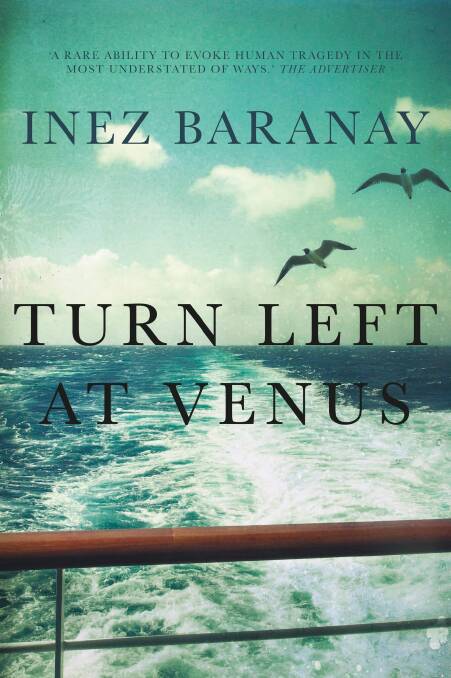In Inez Baranay's Turn Left at Venus, we meet Ada, a writer who is skilled at being invisible. Ada arrives in Australia as a refugee with memories she does not trust.
Subscribe now for unlimited access.
or signup to continue reading
But this novel isn't the story of Ada piecing together a sense of identity from a broken past.
It's about the future, and about Ada's eclectic and deep-layered experience of the present at various places and stages throughout her life.
The novel is told in interspersed, multi-form threads including fiction written by Ada and online conversations about Ada's work.
She writes under the pseudonym A.L. Ligeti, and one of her most memorable creations is Lueshira, a place whose inhabitants change gender during their lives.
In this world, women throw send-off parties for friends as they're dying. This ties in to the most tangible of the novel's through-lines: a mute, unmoving but all-observing Ada on her deathbed.
The fragmentary nature of Turn Left at Venus allows for an exploration of life's big questions.

This exploration is pioneered by a creative soul who upturns expectation, finding unseen angles in familiar territory.
This is the endeavour of Ada, the protagonist, and the achievement of Baranay, the author.
A lesser writer might struggle to hold the reader's attention through the varied content and minimal plot momentum, however Baranay's prose is intense and immediate.
Readers willing to let go of their own expectations and relinquish control open themselves to an unusual and rewarding reading experience.
This is a book of many pleasures: music, literature, visual art and sexuality swirl in and out of focus.
Baranay's evocation of place, including locations such as Bali and Kings Cross, are written with a sensuality that grounds the reader in the physical, a useful thing given the novel's metaphysical preoccupations.
The most interesting parts of the book come through Ada's grappling with her own desires, particularly her creative desire.
Ada prefers wandering, writing a book in one location and then moving on. When she imagines what it might be like to have a home, a place to keep things, to return to, she claims to prefer the nomadic existence of hotels, of living on the fringes.
The experience of reading this novel is also one of wandering, a wandering of the mind and into the mind. At the same time, the book is a guide (it's in the title, after all); there are many treasures to be found within its pages.
- Kathryn Hind is a Canberra writer. Her novel Hitch, is published by Penguin Random House.
- Turn Left at Venus, by Inez Baranay. NewSouth Books. $29.99.

